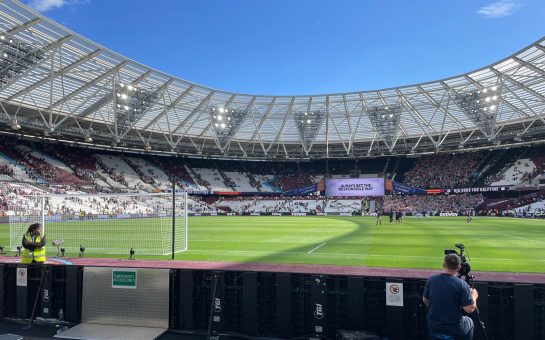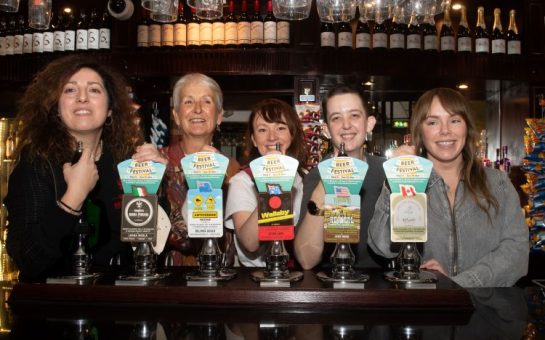Chief Executive Paul Goodwin believes their continued progress bodes well for a targeted London 2012 top-eight finish.

With just 27 seconds to go, the thousand-strong home crowd erupts as everyone joins in the celebrations of Britt Goodwin’s winning goal at the handball arena in Stratford’s Olympic Park.
Great Britain’s women celebrated the opening of the 7,000 capacity arena in style last month with a thrilling 22-20 victory over All African Games champions Angola, in the first game of the London Handball Cup, a test event for the London 2012 Olympics.
The atmosphere inside the copper-clad venue was unbelievable and the reaction to that vital goal shows you how far the sport has come for Britain’s women.
After that opening win, the Brits lost out 31-23 to old foes Austria before being defeated 22-17 by Slovakia, meaning they finished last out of the six participants.
Despite their final finish in the event, Paul Goodwin, the chief executive of British Handball, says that their continued progress shows how bright the future is for the sport, and he is confident that they can achieve their target of a top-eight finish at the 2012 Games.
“We are satisfied that we are on track to achieve our target but in this period before the Olympics we need more international experience. We are never complacent and know that we have a tough challenge ahead of us.
“It would be foolish of anyone to think that you can beat the rest of the world from a standing start. Our improving results in international competitions have made other teams sit up and take notice.
“We plan to be competitive on improving results in international competitions and are looking to build on these foundations for future international success.”
It was in its formative stages under a decade ago, with exhaustive trials held in search of a squad ready to take Great Britain on the handball highway directly to the London 2012 Olympics.
The hopeful Olympians were whittled down from thousands to a lucky few, and with no professional league in the UK, some were sent to training camps in Denmark to hone their talents in the country which invented the indoor version of the sport back in the 1940s.
Part of this process included the setting up of the highly-publicised Sporting Giants campaign by UK Sport, which scoured the ranks for tall athletes wanting to switch sports to handball, rowing or volleyball.
This search produced some good results with current players include Kathryn Fudge and Laura Innes finding their way into the sport through this campaign.
Just when it looked like things could only get better for the sport, they were dealt a cruel blow in 2009. In order to address a £79 million shortfall in government funding, the sport’s funding was chopped in half from £2.9 million to £1.4 million for the period running up to 2013.
As a result the scheme set up in Denmark was closed and players were forced to try and find contracts with clubs around Europe, so that they could make end meets.
The make-up of Britain’s squad is best described as cosmopolitan, with players of Italian, German, Swiss and French descent helping to shape Britain’s quest for Olympic medals.
A lack of a completely British born and bred side has received some criticism, but the relative size of the sport to others means that they have a smaller pool of players to draw upon.
But Goodwin believes that the multi-cultural make up of the group shouldn’t necessarily be viewed as a bad thing.
“In this day and age I find it quite incredible that anyone should judge someone by their name or accent,” he said.
“There are millions of people on the streets of Britain who have a British passport but are not called Brown, Smith or Jones.
“Our athletes are so proud to pull on a GB shirt that they have given up good jobs and put their education on hold for the opportunity to represent us at the Olympics.”




